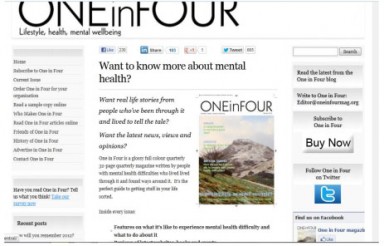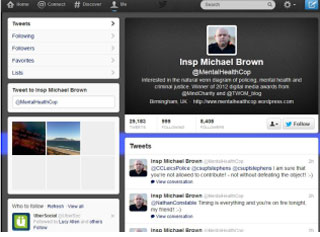What businesses can learn from mental health practitioners
28 March 2013 By Northern Lights
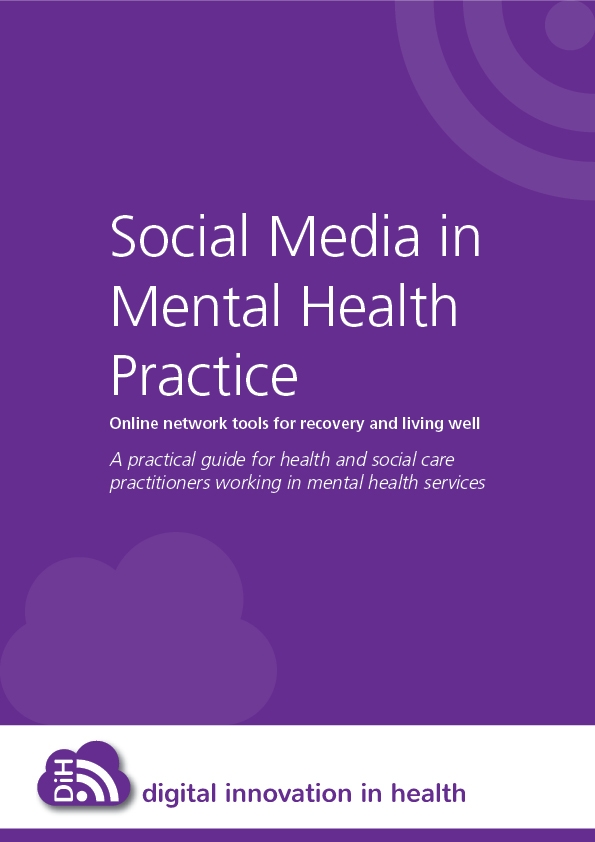
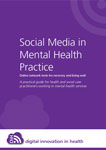 I was delighted to be asked by Victoria Betton to co-author an ebook for the NHS on using social media to help mental health practitioners.
I was delighted to be asked by Victoria Betton to co-author an ebook for the NHS on using social media to help mental health practitioners.
Packed with examples of best practice and case studies, I have been so impressed at how professionals are using social media – from consultants and GPs to occupational therapists and a policeman. There are really strong, supportive communities in this field of mental health and the last impression from working with these really inspiring people is – business has a lot to learn from this.
So what has impressed me over the last few months?
1. The breakdown of hierarchies
One upon a time, doctors were king and expected to know all the answers. These days patients are seen as part ‘expert’ and joint decision maker in their treatment. In mental health, more than any other field it seems to me, treatment has to be a partnership between ‘the expert’ and ‘the patient’ (I got myself into knots over the language used in this field and my apologies if I am still making mistakes).
Social media is a fantastic way to break down barriers in achieving this. And if business leaders are wanting to engage more with their employees, there is a lot to learn from how this is being done in mental health.
Mark Brown, editor of One in Four a lifestyle magazine by and for people with mental health difficulties, points out how satisfying it is for someone who in everyday life would be seen as a ‘patient’, becoming the ‘expert’ when talking to others through social media – and both learning from the experience. He says: “I think mental health professionals have to keep up with the aspirations, ideas, hopes and ideals of the people they work on behalf of. Engaging with social media is part of that.”
And a blogger, who goes under the name of Little Feet, says: “I would love to see the ‘them’ and ‘us’ barriers broken down in mental health; social media has provided the medium for this to happen.”
2. Learning from peers
There were two great examples of professionals who have set up social media forums and sharing and engaging with their peers.
Sue Sibbald is a service user consultant in Sheffield, living with a diagnosis of Borderline Personality Disorder (BPD). Sue is online on Twitter as @BPDFFS (FFS – fighting for services) Facebook and has a blog
She set up @OfficialBPDchat in 2012 to help people affected by the diagnosis. Each Sunday at 9pm, anyone can take part in an hour long chat using the hashtag #BPDchat – on anything from ‘coping skills for the holidays’ to coping with difficult times.
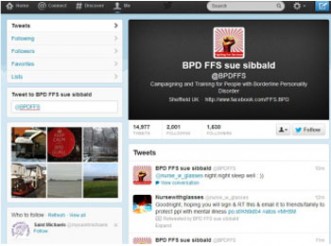 The other was @wenurses which has the #wenurses chat on a Thursday evening at 8pm. They were kind enough to host a chat about what we should include in the social media ebook and particularly looking at some of the issues around boundaries between professional and personal lives.
The other was @wenurses which has the #wenurses chat on a Thursday evening at 8pm. They were kind enough to host a chat about what we should include in the social media ebook and particularly looking at some of the issues around boundaries between professional and personal lives.
I guess there are a few good social media forums in business – the best that comes to mind is Yorkshire Mafia’s LinkedIn group which has some really good discussions and helpful sharing. I just felt there was far more going on in the mental health field than we’ve started to see in business yet.
3. Fantastic community engagement
Any business looking to engage with their local community should read the ebook. Here are ideas about how you could support community projects or set up ones under your umbrella to be a part of your community.
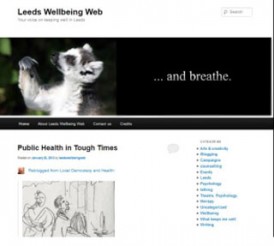 I love the Leeds Wellbeing Web which is a blog by and for people experiencing mental health difficulties. It is run by a group of volunteer community journalists who contribute information, stories, pictures or films about places and activities in Leeds which help maintain their wellbeing. The aim is to create a fantastic online resource where people can share their experiences of staying well in Leeds.
I love the Leeds Wellbeing Web which is a blog by and for people experiencing mental health difficulties. It is run by a group of volunteer community journalists who contribute information, stories, pictures or films about places and activities in Leeds which help maintain their wellbeing. The aim is to create a fantastic online resource where people can share their experiences of staying well in Leeds.
This blog aims to encourage people to think more positively and proactively about their mental health and help them to maintain their wellbeing. It’s about giving people a voice to tell their own stories and the story of their city through their own eyes.
4. Social media as an innovative tool for your business
Businesses are very slow to understand the role of thought leadership blogs. But used imaginatively, you can engage with people you only ever dreamed of meeting or having a conversation with.
Mental Health Cop is a serving 24/7 police inspector blogging in a primarily professional capacity with an informal tone. He set up a range of social media accounts in 2011 to engage and educate around the role of the police in mental health related scenarios – originally to help police officers to ensure better and more informed responses to incidents. But he noticed an appetite for direct engagement with other non-police professionals and more importantly with people who use mental health and police services.
He said: “My blog – www.mentalhealthcop.wordpress.com – is the primary store of information: almost 250 articles on all aspects of policing, mental health and criminal justice. Twitter and Facebook are the vehicles by which to publicise the articles and engage with people who want to discuss them.
“I have also found Twitter has been a space for people to raise whatever issues are affecting them and ask for a police view. This has included patients checking the application or relevance of legal frameworks that are being applied or considered in relation to them, either by the NHS or by the police.
“I prefer to think of social media as a dialogue rather than a broadcasting platform. I keep things quite informal and think that the term ‘cop’ in “MentalHealthCop” indicates this informality. I have been known to jest and joke with people where it seems appropriate because I hear positive feedback about ‘official’ Twitter accounts that show a human side. I think it is important to be accessible and engaging but this is almost always around the main theme of the platforms: policing, mental health and criminal justice.
I am extremely grateful to have been invited to help on this project and inspired by all those who have helped – thank you.
My overwhelming impression of those using social media in mental health is that they are incredibly generous of spirit, authentic and extremely open-minded to learn and help each other.
For me there is a lot for businesses to learn – and I am still reflecting on what we should be taking from these inspirational leaders. If you have had a chance to read this (free) ebook, what is your impression of about these thought leaders?
And with many thanks to the kind reviewers of this ebook
Connecting Social Care and Social Media
Reviews from Niccola Swan, director Leeds Mind and Sheena Hastings, chief feature writer, Yorkshire Post

